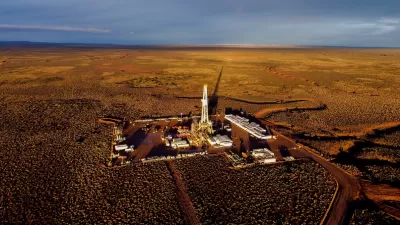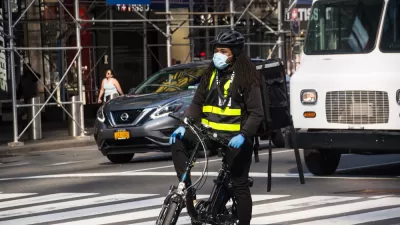Examining the immense scale of the challenge in delivering clean drinking water to everyone in the world.

Jonathan Doyle reports on the challenges facing the United Nations' plans to achieve universal access to safe drinking water around the world, and the progress made so far toward that goal.
The goal, included among 17 Sustainable Development Goals (SDGs) adopted by the UN in 2015, is stated as, "Achieving universal access to water sources that are improved, with a round trip for water collection not exceeding 30 minutes, safe from contamination, and available when needed," with a target date of 2030.
The challenge is daunting. According to data cited by Doyle, 785 million around the world did not have access to basic water services in 2017. About 144 million people were collecting water directly from surface water sources in 2017. Finally, at least 2 billion people get their water from a source contaminated by feces.
For signs of progress on the clean water SDG, Doyle points first to the United States, with the Safe Drinking Water Act (SDWA) approved in 1974 and amended in 1996 (unmentioned are the failures of that law to protect the people of Flint, to cite one conspicuous example). At the international level, Doyle points to work by the United Nations and the World Health Organization. But the most significant achievements are credited to NGOs such as World Vision, which claims to have delivered sustainable, clear water to 20 million people as of 2020. Finally, Doyle credits the private sector with achievements in water filtration technologies that are also providing benefits around the world.
[Disclaimer: the end of the article shifts to content marketing for water filtration systems.].
FULL STORY: Safe Drinking Water In 2021: Progress Made But So Much Further To Go

Maui's Vacation Rental Debate Turns Ugly
Verbal attacks, misinformation campaigns and fistfights plague a high-stakes debate to convert thousands of vacation rentals into long-term housing.

Planetizen Federal Action Tracker
A weekly monitor of how Trump’s orders and actions are impacting planners and planning in America.

In Urban Planning, AI Prompting Could be the New Design Thinking
Creativity has long been key to great urban design. What if we see AI as our new creative partner?

King County Supportive Housing Program Offers Hope for Unhoused Residents
The county is taking a ‘Housing First’ approach that prioritizes getting people into housing, then offering wraparound supportive services.

Researchers Use AI to Get Clearer Picture of US Housing
Analysts are using artificial intelligence to supercharge their research by allowing them to comb through data faster. Though these AI tools can be error prone, they save time and housing researchers are optimistic about the future.

Making Shared Micromobility More Inclusive
Cities and shared mobility system operators can do more to include people with disabilities in planning and operations, per a new report.
Urban Design for Planners 1: Software Tools
This six-course series explores essential urban design concepts using open source software and equips planners with the tools they need to participate fully in the urban design process.
Planning for Universal Design
Learn the tools for implementing Universal Design in planning regulations.
planning NEXT
Appalachian Highlands Housing Partners
Mpact (founded as Rail~Volution)
City of Camden Redevelopment Agency
City of Astoria
City of Portland
City of Laramie




























